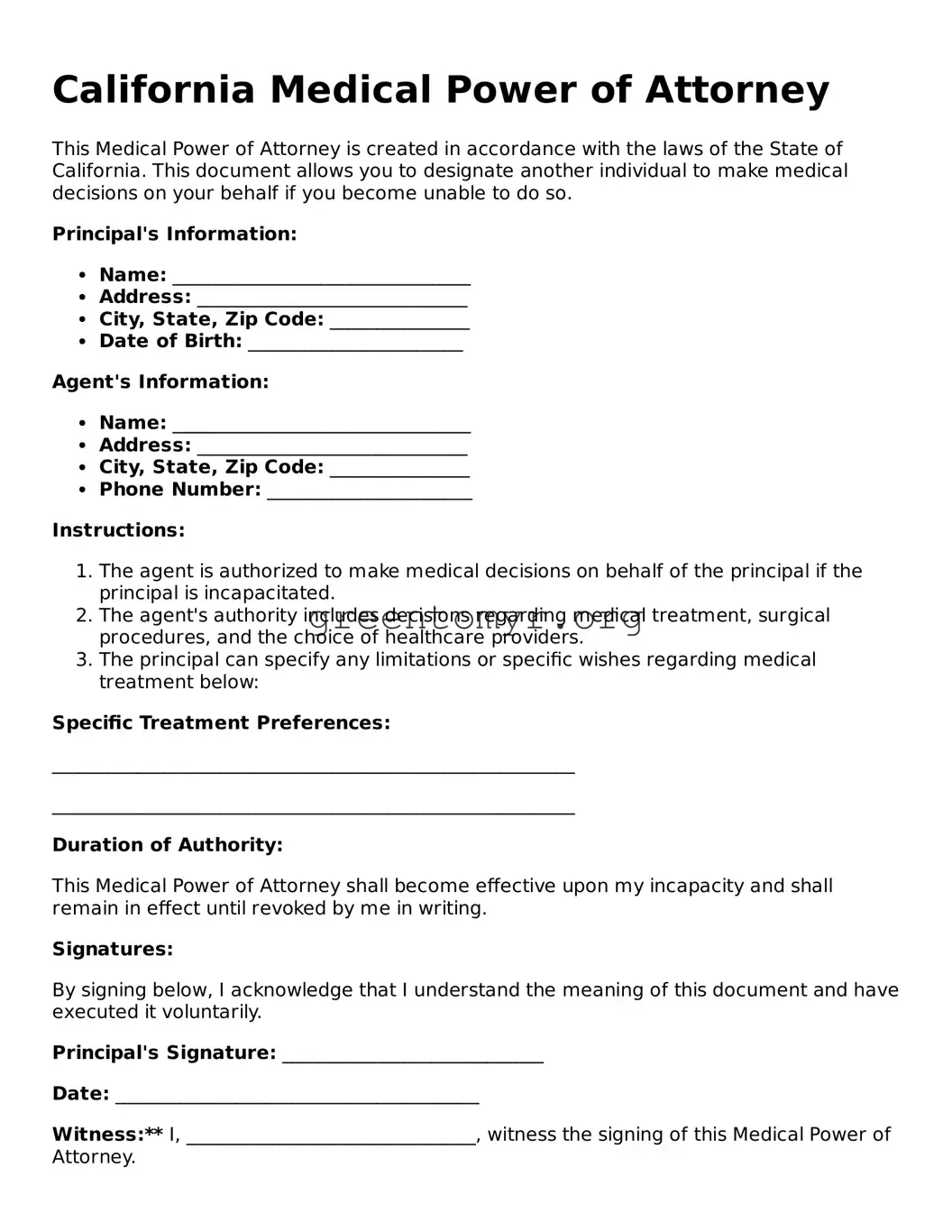California Medical Power of Attorney
This Medical Power of Attorney is created in accordance with the laws of the State of California. This document allows you to designate another individual to make medical decisions on your behalf if you become unable to do so.
Principal's Information:
- Name: ________________________________
- Address: _____________________________
- City, State, Zip Code: _______________
- Date of Birth: _______________________
Agent's Information:
- Name: ________________________________
- Address: _____________________________
- City, State, Zip Code: _______________
- Phone Number: ______________________
Instructions:
- The agent is authorized to make medical decisions on behalf of the principal if the principal is incapacitated.
- The agent's authority includes decisions regarding medical treatment, surgical procedures, and the choice of healthcare providers.
- The principal can specify any limitations or specific wishes regarding medical treatment below:
Specific Treatment Preferences:
________________________________________________________
________________________________________________________
Duration of Authority:
This Medical Power of Attorney shall become effective upon my incapacity and shall remain in effect until revoked by me in writing.
Signatures:
By signing below, I acknowledge that I understand the meaning of this document and have executed it voluntarily.
Principal's Signature: ____________________________
Date: _______________________________________
Witness:** I, _______________________________, witness the signing of this Medical Power of Attorney.
Witness Signature: ______________________________
Date: ______________________________________
